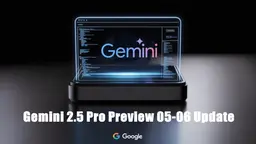Liquid AI Features
Liquid AI is an MIT spin-off company that develops innovative Liquid Foundation Models (LFMs) using non-transformer architecture to achieve state-of-the-art AI performance with smaller memory footprint and more efficient inference.
View MoreKey Features of Liquid AI
Liquid AI is an MIT spin-off company that has developed a new generation of AI models called Liquid Foundation Models (LFMs), which are built on dynamical systems, numerical linear algebra, and signal processing principles rather than traditional transformer architecture. These models achieve state-of-the-art performance while maintaining a smaller memory footprint and more efficient inference, capable of handling various types of sequential data including text, audio, images, video, and signals.
Novel Architecture: Uses a non-transformer based architecture grounded in dynamical systems that allows parameters to adapt and change over time through experience
Efficient Resource Usage: Maintains a significantly smaller memory footprint compared to traditional LLMs, requiring less computational power and storage
Adaptive Computation: Features custom computational units with targeted weight sharing and feature sharing capabilities that can modulate based on input context
Multi-Modal Capabilities: Can process and understand various types of sequential data including text, audio, images, video, and time series data
Use Cases of Liquid AI
Autonomous Vehicles: Can be used for reliable steering and navigation in complex outdoor environments without extensive fine-tuning
Weather Forecasting: Capable of processing and analyzing complex time series data for accurate weather predictions
Enterprise AI Integration: Enables businesses to implement AI solutions with existing infrastructure due to its efficient resource usage and scalability
Multilingual Processing: Supports multiple languages including English, Spanish, French, German, Chinese, Arabic, Japanese, and Korean
Pros
Significantly smaller memory footprint and more efficient resource usage
Ability to adapt and learn from experience over time
Better interpretability and explainability compared to traditional models
Multi-modal capabilities with various data types
Cons
Relatively new technology with limited real-world implementation history
Not open-source, limiting community development and verification
Limited language support compared to some established models
Liquid AI Monthly Traffic Trends
Liquid AI experienced a 17.8% decline in traffic, reaching 47.9K visits. Despite the recent launch of the Hyena Edge model and significant funding, the decline suggests that these updates may not have yet translated into increased user engagement. The competitive landscape, with other AI models gaining traction, might also be a contributing factor.
View history traffic
Related Articles
View More













